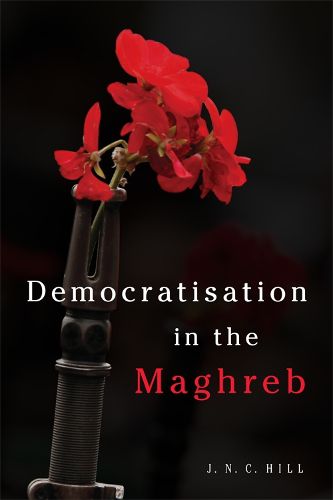Readings Newsletter
Become a Readings Member to make your shopping experience even easier.
Sign in or sign up for free!
You’re not far away from qualifying for FREE standard shipping within Australia
You’ve qualified for FREE standard shipping within Australia
The cart is loading…






The past few years have been a period of unprecedented political upheaval for the Maghreb. A protest which began in a provincial city in one of North Africa’s quieter corners quickly engulfed the entire region. Presidents of decades standing were swept from office on waves of public discontent while their counterparts elsewhere nervously tried to calm the mob. In several places these protests are still being played out; in the law courts of Egypt, on the battlefields of Libya, and in the leaking tubs carrying migrants to Europe. And even where the winds of change have died down, the political and social landscape is altered from before.
Herein lies a defining paradox of the Arab Spring; its ubiquity and singularity. Nearly all of the region’s countries have been affected. But despite making similar demands in largely the same ways over much the same period, their respective protest movements have achieved different results. Drawing on Steven Levitsky and Lucan Way’s celebrated model for examining political transitions, this book explains these discrepancies, why Tunisia, Algeria, Morocco and Mauritania have reached different outcomes. It does so by contextualising each country’s experiences, by examining and comparing their political development over the past decade.
$9.00 standard shipping within Australia
FREE standard shipping within Australia for orders over $100.00
Express & International shipping calculated at checkout
Stock availability can be subject to change without notice. We recommend calling the shop or contacting our online team to check availability of low stock items. Please see our Shopping Online page for more details.
The past few years have been a period of unprecedented political upheaval for the Maghreb. A protest which began in a provincial city in one of North Africa’s quieter corners quickly engulfed the entire region. Presidents of decades standing were swept from office on waves of public discontent while their counterparts elsewhere nervously tried to calm the mob. In several places these protests are still being played out; in the law courts of Egypt, on the battlefields of Libya, and in the leaking tubs carrying migrants to Europe. And even where the winds of change have died down, the political and social landscape is altered from before.
Herein lies a defining paradox of the Arab Spring; its ubiquity and singularity. Nearly all of the region’s countries have been affected. But despite making similar demands in largely the same ways over much the same period, their respective protest movements have achieved different results. Drawing on Steven Levitsky and Lucan Way’s celebrated model for examining political transitions, this book explains these discrepancies, why Tunisia, Algeria, Morocco and Mauritania have reached different outcomes. It does so by contextualising each country’s experiences, by examining and comparing their political development over the past decade.